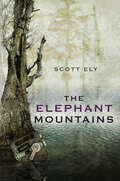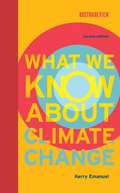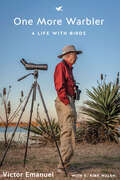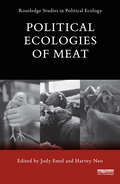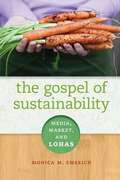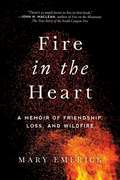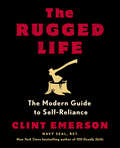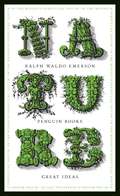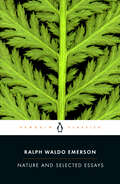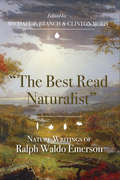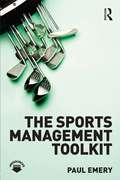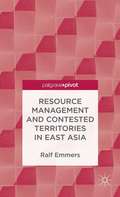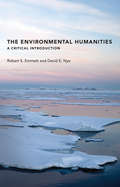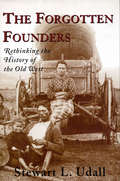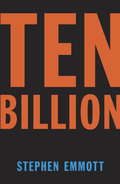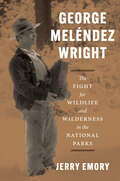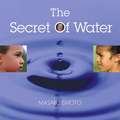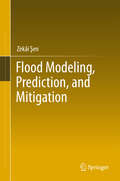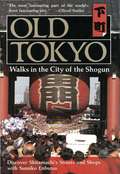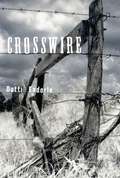- Table View
- List View
Cottage Industry of Biocontrol Agents and Their Applications: Practical Aspects to Deal Biologically with Pests and Stresses Facing Strategic Crops
by Nabil El-Wakeil Mahmoud Saleh Mohamed Abu-HashimThis book analyses the mass production and application of biological control products for biotic and abiotic factors affecting agricultural production. It also describes how to develop sustainable agriculture under Egyptian conditions. The book is divided into four parts covering: 1) mass production of parasitoids, insects and mite predators, 2) mass production of the microbial control agents for managing insect pests, 3) biocontrol products for plant diseases, and 4) bioproducts against abiotic factors. It discusses various methods of controlling insect pests and plant diseases in order to increase agricultural production, improve the quality of field crops and reduce the food gap by applying a range of technologies. This book helps increase our understanding and awareness of how to produce healthy products for local consumption and utilization as well as for exports.
The Elephant Mountains
by Scott ElyAn unprecedented series of hurricanes has swollen the Mississippi River to unheard-of levels and is threatening to put New Orleans and most of the low-lying areas of the South under water. Fifteen-year-old Stephen is spending the summer with his father near a small town north of Lake Pontchartrain when another powerful hurricane arrives and the levees on the Mississippi River completely fail. In the anarchy and chaos that results, Stephen's father is killed, and the boy is left to fend for himself. Stephen soon encounters Angela, a college student whose parents have also been killed. Navigating the labyrinth of flooded fields and towns in an airboat, the two set out in search of Stephen's mother and higher ground.
What We Know About Climate Change
by Kerry EmanuelThe vast majority of scientists agree that human activity has significantly increased greenhouse gases in the atmosphere--most dramatically since the 1970s. In February 2007 the Intergovernmental Panel on Climate Change found that global warming is "unequivocal" and that human-produced carbon dioxide and other greenhouse gases are chiefly to blame, to a certainty of more than 90 percent. Yet global warming skeptics and ill-informed elected officials continue to dismiss this broad scientific consensus. In What We Know About Climate Change, MIT atmospheric scientist Kerry Emanuel outlines the basic science of global warming and how the current consensus has emerged. Although it is impossible to predict exactly when the most dramatic effects of global warming will be felt, he argues, we can be confident that we face real dangers. Emanuel, whose work was widely cited in media coverage of Hurricane Katrina, warns that global warming will contribute to an increase in the intensity and power of hurricanes and flooding and more rapidly advancing deserts. But just as our actions have created the looming crisis, so too might they avert it. Emanuel calls for urgent action to reduce greenhouse gases and criticizes the media for playing down the dangers of global warming (and, in search of "balance," quoting extremists who deny its existence). An afterword by environmental policy experts Judith Layzer and William Moomaw discusses how the United States could lead the way in the policy changes required to deal with global warming. Kerry Emanuel is Professor of Atmospheric Science in the Department of Earth, Atmospheric, and Planetary Science at MIT. He is the author of Divine Wind: The History and Science of Hurricanes and Atmospheric Convection. In May 2006 he was named one of Time magazine's "Time 100: The People Who Shape Our World."
One More Warbler: A Life with Birds
by Victor Emanuel S Kirk WalshOne of America’s foremost birders recounts his birding adventures as well as his friendships with numerous luminaries.Victor Emanuel is widely considered one of America’s leading birders. He has observed more than six thousand species during travels that have taken him to every continent. He founded the largest company in the world specializing in birding tours and one of the most respected ones in ecotourism. Emanuel has received some of birding’s highest honors, including the Roger Tory Peterson Award from the American Birding Association and the Arthur A. Allen Award from the Cornell Laboratory of Ornithology. He also started the first birding camps for young people, which he considers one of his greatest achievements.In One More Warbler, Emanuel recalls a lifetime of birding adventures—from his childhood sighting of a male Cardinal that ignited his passion for birds to a once-in-a-lifetime journey to Asia to observe all eight species of cranes of that continent. He tells fascinating stories of meeting his mentors who taught him about birds, nature, and conservation, and later, his close circle of friends—Ted Parker, Peter Matthiessen, George Plimpton, Roger Tory Peterson, and others—who he frequently birded and traveled with around the world. Emanuel writes about the sighting of an Eskimo Curlew, thought to be extinct, on Galveston Island; setting an all-time national record during the annual Audubon Christmas Bird Count; attempting to see the Imperial Woodpecker in northwestern Mexico; and birding on the far-flung island of Attu on the Aleutian chain. Over the years, Emanuel became a dedicated mentor himself, teaching hundreds of young people the joys and enrichment of birding. “Birds changed my life,” says Emanuel, and his stories make clear how a deep connection to the natural world can change everyone’s life.“Whether he is recounting his experiences with raptors in Turkey, rose-ringed parakeets in India, or black-and-white owls in Panama, Emanuel’s love of the natural world is always on display. A charming narrative for avid birders and armchair nature lovers, sure to inspire at least a few flights of fancy.” —Kirkus Reviews“Victor Emanuel is a remarkable man who found his mentors in birding and went on to become a leader in that community for the past fifty years. In One More Warbler, Victor shares his wide-ranging adventures across the globe, including the story of his enormously influential ecotourism company, and the reasons why he become a mentor himself to whole generations of young ornithologists. It’s a fascinating read.” —Kenn Kaufman, author of Kingbird Highway“This book is classic Victor: a tapestry of anecdotes, adventures, philosophical musings, and tributes to people, all woven together by glowing words of admiration for the rich diversity of birds that grace our lives, and define his.” —John Fitzpatrick, Director, Cornell Lab of Ornithology
One More Warbler: A Life with Birds
by Victor Emanuel S Kirk WalshOne of America’s foremost birders recounts his birding adventures as well as his friendships with numerous luminaries.Victor Emanuel is widely considered one of America’s leading birders. He has observed more than six thousand species during travels that have taken him to every continent. He founded the largest company in the world specializing in birding tours and one of the most respected ones in ecotourism. Emanuel has received some of birding’s highest honors, including the Roger Tory Peterson Award from the American Birding Association and the Arthur A. Allen Award from the Cornell Laboratory of Ornithology. He also started the first birding camps for young people, which he considers one of his greatest achievements.In One More Warbler, Emanuel recalls a lifetime of birding adventures—from his childhood sighting of a male Cardinal that ignited his passion for birds to a once-in-a-lifetime journey to Asia to observe all eight species of cranes of that continent. He tells fascinating stories of meeting his mentors who taught him about birds, nature, and conservation, and later, his close circle of friends—Ted Parker, Peter Matthiessen, George Plimpton, Roger Tory Peterson, and others—who he frequently birded and traveled with around the world. Emanuel writes about the sighting of an Eskimo Curlew, thought to be extinct, on Galveston Island; setting an all-time national record during the annual Audubon Christmas Bird Count; attempting to see the Imperial Woodpecker in northwestern Mexico; and birding on the far-flung island of Attu on the Aleutian chain. Over the years, Emanuel became a dedicated mentor himself, teaching hundreds of young people the joys and enrichment of birding. “Birds changed my life,” says Emanuel, and his stories make clear how a deep connection to the natural world can change everyone’s life.“Whether he is recounting his experiences with raptors in Turkey, rose-ringed parakeets in India, or black-and-white owls in Panama, Emanuel’s love of the natural world is always on display. A charming narrative for avid birders and armchair nature lovers, sure to inspire at least a few flights of fancy.” —Kirkus Reviews“Victor Emanuel is a remarkable man who found his mentors in birding and went on to become a leader in that community for the past fifty years. In One More Warbler, Victor shares his wide-ranging adventures across the globe, including the story of his enormously influential ecotourism company, and the reasons why he become a mentor himself to whole generations of young ornithologists. It’s a fascinating read.” —Kenn Kaufman, author of Kingbird Highway“This book is classic Victor: a tapestry of anecdotes, adventures, philosophical musings, and tributes to people, all woven together by glowing words of admiration for the rich diversity of birds that grace our lives, and define his.” —John Fitzpatrick, Director, Cornell Lab of Ornithology
Political Ecologies of Meat (Routledge Studies in Political Ecology)
by Jody Emel Harvey NeoLivestock production worldwide is increasing rapidly, in part due to economic growth and demand for meat in industrializing countries. Yet there are many concerns about the sustainability of increased meat production and consumption, from perspectives including human health, animal welfare, climate change and environmental pollution. This book tackles the key issues of contemporary meat production and consumption through a lens of political ecology, which emphasizes the power relations producing particular social, economic and cultural interactions with non-human nature. Three main topics are addressed: the political ecology of global livestock production trends; changes in production systems around the world and their implications for environmental justice; and existing and emerging governance strategies for meat production and consumption systems and their implications. Case studies of different systems at varying scales are included, drawn from Asia, Africa, the Americas and Europe. The book includes an editorial introduction to set the context and synthesize key messages for the reader.
The Gospel of Sustainability: Media, Market and LOHAS
by Monica M. EmerichFrom organic produce and clothing to socially conscious investing and eco-tourism, the lifestyles of health and sustainability, or LOHAS, movement encompasses diverse products and practices intended to contribute to a more sustainable lifestyle for people and the planet. In The Gospel of Sustainability, Monica M. Emerich explores the contemporary spiritual expression of this green cultural shift at the confluence of the media and the market. This is the first book to qualitatively study the LOHAS marketplace and the development of a discourse of sustainability of the self and the social and natural worlds. Emerich draws on myriad sources related to the notions of mindful consumption found throughout the LOHAS marketplace, including not just products and services but marketing materials, events, lectures, regulatory policies, and conversations with leaders and consumers. These disparate texts, she argues, universally project a spiritual message about personal and planetary health that is in turn reforming capitalism by making consumers more conscious.
Fire in the Heart: A Memoir of Friendship, Loss, and Wildfire
by Mary EmerickFIRE IN THE HEART is a powerful memoir by a woman, once a shy, insecure schoolgirl, who reinvented herself as a professional wildland fire fighter. Determined to forge herself into a stronger, braver person, Mary climbs to heights she never imagined for herself, eventually directing blazes across the country. Filled with literal struggles for survival, tough choices and Mary's burning passion for what she does, Fire in the Heart, is an unflinching account of one woman's relationship with fire. But when she loses someone she loves to the famous Storm King Mountain forest fire in Colorado, which killed fourteen firefighters, Mary faces the hardest choice of her life; to stay in the game or turn back and try to find the woman she used to be. It is both a thrilling memoir about life-threatening work and a meditation on identity, strength, bravery, bonds, and survivor's guilt.
The Rugged Life: The Modern Guide to Self-Reliance
by Clint EmersonBecome self-reliant, live off the land, and be prepared for the unexpected in this modern guide to self-sufficiency and homesteading from New York Times bestselling author, retired Navy SEAL, and survival skills expert Clint Emerson.&“Add The Rugged Life by former Navy SEAL Clint Emerson to your library today and get on the path to independence and self-sufficiency.&”—Jack Carr, Navy SEAL Sniper and #1 New York Times bestselling author of The Devil&’s HandClint Emerson is the go-to expert for surviving the first minutes, hours, and days of a crisis. Now, in The Rugged Life, he works with modern homesteading experts to show you how to thrive over the long-term—for months, years, or even a lifetime—by being prepared and self-sufficient. You can live the Rugged Life completely off-the-grid by farming your own food and using the waste from your toilet for compost. Or, you can live it by adding solar panels to your suburban home and keeping chickens and bees in your backyard. You can even live the Rugged Life in a city by simply gathering the salad for tonight&’s dinner from your windowsill garden. Each of these homesteading and prepper long-term survival skills stand on their own, and taken together, they can help you design the independent life you want for yourself and your family. • Be your own homesteader: Make your own shampoo and face creams; pickle and ferment food; make natural bug spray and cleaning products; smoke meat; tan a hide• Be your own protector: Create a last-resort emergency plan; gather medicinal plants; protect against dangerous animals and threats; understand survival first aid• Be your own provider: Hunt for game; make a gillnet; set snares; forage for wild foods; build a rabbit hutch; ice fish; butcher a pig; keep bees• Be your own builder: Retrofit a van; set up solar, microhydro, and geothermal power; create a water catchment and filtration system; build a shipping container home• Be your own farmer: Grow a victory garden; build a greenhouse; waffle garden to save space and resources; build a root cellar; can, dry, and store crops; operate a tractor With hundreds of step-by-step, illustrated, self-sustaining skills and projects, The Rugged Life is for everyone who feels they can use more adventure, freedom, and choice in their life—everyone ready to get out of their comfort zone and try new, hard, profoundly rewarding things.
Nature (Penguin Great Ideas)
by Ralph EmersonOriginally published anonymously, Nature was the first modern essay to recommend the appreciation of the outdoors as an all-encompassing positive force. Emerson’s writings were recognized as uniquely American in style and content, and launched the idea of going for a walk as a new way of looking at the world. Throughout history, some books have changed the world. They have transformed the way we see ourselves – and each other. They have inspired debate, dissent, war and revolution. They have enlightened, outraged, provoked and comforted. They have enriched lives – and destroyed them. Now Penguin brings you the works of the great thinkers, pioneers, radicals and visionaries whose ideas shook civilization and helped make us who we are.
Nature and Selected Essays
by Ralph Waldo EmersonAn indispensible look at Emerson's influential life philosophyThrough his writing and his own personal philosophy, Ralph Waldo Emerson unburdened his young country of Europe's traditional sense of history and showed Americans how to be creators of their own circumstances. His mandate, which called for harmony with, rather than domestication of, nature, and for a reliance on individual integrity, rather than on materialistic institutions, is echoed in many of the great American philosophical and literary works of his time and ours, and has given an impetus to modern political and social activism.Larzer Ziff's introduction to this collection of fifteen of Emerson's most significant writings provides the important backdrop to the society in which Emerson lived during his formative years.For more than seventy years, Penguin has been the leading publisher of classic literature in the English-speaking world. With more than 1,700 titles, Penguin Classics represents a global bookshelf of the best works throughout history and across genres and disciplines. Readers trust the series to provide authoritative texts enhanced by introductions and notes by distinguished scholars and contemporary authors, as well as up-to-date translations by award-winning translators.
The Best Read Naturalist": Nature Writings of Ralph Waldo Emerson (Under the Sign of Nature: Explorations in Ecocriticism)
by Ralph Waldo Emerson Michael P. Branch Clinton MohsRalph Waldo Emerson is one of the most important figures in American nature writing, yet until now readers have had no book devoted to this central theme in his work. "The Best Read Naturalist" fills this lacuna, placing several of Emerson’s lesser-known pieces of nature writing in conversation with his canonical essays. Organized chronologically, the thirteen selections--made up of sermons, lectures, addresses, and essays--reveal an engagement with natural history that spanned Emerson’s career. As we watch him grapple with what he called the "book of nature," a more environmentally connected thinker emerges--a "green" Emerson deeply concerned with the physical world and fascinated with the ability of science to reveal a correspondence between the order of nature and that of the mind. "The Best Read Naturalist" illuminates the vital influence that the study of natural history had on the development of Emerson’s mature philosophy.
The Collected Works of Ralph Waldo Emerson Volume I: Nature, Addresses, and Lectures
by Ralph Waldo Emerson Alfred R. Ferguson Robert E. Spiller Waldron P. BelknapRecords the creative and intellectual development of Emerson as a man of letters through a collection of his writings.
The Sports Management Toolkit
by Paul EmeryThe Sports Management Toolkit is a practical guide to the most important management tools and techniques available to those working in the sport and leisure industries. Designed to bridge the gap between the classroom and the workplace, it includes ten free-standing chapters, each of which provides a detailed introduction to best practice in one of the core sports management disciplines. Written in a clear and straightforward style, and free of management jargon, the book covers all the key functional areas of contemporary sports management, including: marketing performance management risk management human resource management project management finance. Each chapter includes a detailed, step-by-step description of the key tools and techniques and their application; a ‘real world’ case study to demonstrate the technique in action, plus an extensive guide to further resources and a series of self-test questions. The final chapter offers an extended, integrated case-study, demonstrating how all the key management techniques are combined within the everyday operation of a successful sport or leisure organization. This book is essential reading for all students of sport and leisure management, and for all managers looking to improve their professional practice.
Resource Management and Contested Territories in East Asia
by Ralf EmmersRalf Emmers discusses the significance of natural resources as a source of inter-state cooperation and competition in East Asia, assessing whether the joint exploration and development of resources can act as a means to reduce tensions in contested territories. Does the joint management of natural resources in the absence of a negotiated maritime delimitation constitute a feasible strategy to de-escalate maritime sovereignty disputes in East Asia? Can cooperative resource exploitation be separated from nationalist considerations and power politics calculations? Alternatively, should the prospect for joint exploration in disputed waters be expected to raise rather than defuse territorial conflicts, especially if abundant resources are eventually discovered? If this were true, should exploration schemes be postponed until sovereignty disputes have been resolved? Emmers addresses these questions by examining the overlapping sovereignty claims in the Sea of Japan and the East and South China Seas.
The Environmental Humanities: A Critical Introduction (The\mit Press Ser. #1)
by Robert S. Emmett David E. NyeA concise overview of this multidisciplinary field, presenting key concepts, central issues, and current research, along with concrete examples and case studies.The emergence of the environmental humanities as an academic discipline early in the twenty-first century reflects the growing conviction that environmental problems cannot be solved by science and technology alone. This book offers a concise overview of this new multidisciplinary field, presenting concepts, issues, current research, concrete examples, and case studies. Robert Emmett and David Nye show how humanists, by offering constructive knowledge as well as negative critique, can improve our understanding of such environmental problems as global warming, species extinction, and over-consumption of the earth's resources. They trace the genealogy of environmental humanities from European, Australian, and American initiatives, also showing its cross-pollination by postcolonial and feminist theories. Emmett and Nye consider a concept of place not synonymous with localism, the risks of ecotourism, and the cultivation of wild areas. They discuss the decoupling of energy use and progress, and point to OECD countries for examples of sustainable development. They explain the potential for science to do both good and harm, examine dark visions of planetary collapse, and describe more positive possibilities—alternative practices, including localization and degrowth. Finally, they examine the theoretical impact of new materialism, feminism, postcolonial criticism, animal studies, and queer ecology on the environmental humanities.
The Forgotten Founders: Rethinking The History Of The Old West
by David Emmons Stewart L. UdallIn The Forgotten Founders, Stewart Udall draws on his vast knowledge of and experience in the American West to make a compelling case that the key players in western settlement were the sturdy families who travelled great distances across forbidding terrain to establish communities there. He offers an illuminating and wide-ranging overview of western history and those who have written about it, challenging conventional wisdom on subjects ranging from Manifest Destiny to the importance of Eastern capitalists to the role of religion in westward settlement.Stewart Udall argues that the overblown and ahistorical emphasis on a "wild west" has warped our sense of the past. For the mythical Wild West, Stewart Udall substitutes a compelling description of an Old West, the West before the arrival of the railroads, which was the home place for those he calls the "wagon people," the men and women who came, camped, settled, and stayed. He offers a portrait of the West not as a government creation or a corporate colony or a Hollywood set for feckless gold seekers and gun fighters but as primarily a land where brave and hardy people came to make a new life with their families. From Native Americans to Franciscan friars to Mormon pioneers, these were the true settlers, whose goals, according to Stewart Udall were "amity not conquest; stability, not strife; conservation, not waste; restraint, not aggression." The Forgotten Founders offers a provocative new look at one of the most important chapters of American history, rescuing the Old West and its pioneers from the margins of history where latter-day mythmakers have dumped them. For anyone interested in the authentic history of the American West, it is an important and exciting new work.
Ten Billion
by Stephen EmmottA VINTAGE ORIGINALJust over two hundred years ago, there were one billion humans on Earth.There are now over seven billion of us.And, sometime this century, the world population will reach at least ten billion.Deforestation. Desertification. Species extinction. Global warming. Growing threats to food and water. The driving issues of our times are the result of one huge problem: Us. As the population continues to grow, our problems will increase. And this means that every way we look at it, a planet of ten billion people is likely to be a nightmare. Stephen Emmott, a scientist whose lab is at the forefront of research into complex natural systems, sounds the alarm. TEN BILLION is a snapshot of our planet, and our species, approaching a crisis, and a stark analysis of where this leaves us. TEN BILLION is not another climate book. TEN BILLION is a book about us.From the Trade Paperback edition.thing but a "green" book. And it's not another book about the climate. TEN BILLION is a book about us.From the Trade Paperback edition.
George Meléndez Wright: The Fight for Wildlife and Wilderness in the National Parks
by Jerry EmoryThe first biography of a visionary biologist whose groundbreaking ideas regarding wildlife and science revolutionized national parks. When twenty-three-year-old George Meléndez Wright arrived in Yosemite National Park in 1927 to work as a ranger naturalist—the first Hispanic person to occupy any professional position in the National Park Service (NPS)—he had already visited every national park in the western United States, including McKinley (now Denali) in Alaska. Two years later, he would organize the first science-based wildlife survey of the western parks, forever changing how the NPS would manage wildlife and natural resources. At a time when national parks routinely fed bears garbage as part of “shows” and killed “bad” predators like wolves, mountain lions, and coyotes, Wright’s new ideas for conservation set the stage for the modern scientific management of parks and other public lands. Tragically, Wright died in a 1936 car accident while working to establish parks and wildlife refuges on the US-Mexico border. To this day, he remains a celebrated figure among conservationists, wildlife experts, and park managers. In this book, Jerry Emory, a conservationist and writer connected to Wright’s family, draws on hundreds of letters, field notes, archival research, interviews, and more to offer both a biography of Wright and a historical account of a crucial period in the evolution of US parks and the wilderness movement. With a foreword by former NPS director Jonathan B. Jarvis, George Meléndez Wright is a celebration of Wright’s unique upbringing, dynamism, and enduring vision that places him at last in the pantheon of the great American conservationists.
George Meléndez Wright: The Fight for Wildlife and Wilderness in the National Parks
by Jerry EmoryThe first biography of a visionary biologist whose groundbreaking ideas regarding wildlife and science revolutionized national parks. When twenty-three-year-old George Meléndez Wright arrived in Yosemite National Park in 1927 to work as a ranger naturalist—the first Hispanic person to occupy any professional position in the National Park Service (NPS)—he had already visited every national park in the western United States, including McKinley (now Denali) in Alaska. Two years later, he would organize the first science-based wildlife survey of the western parks, forever changing how the NPS would manage wildlife and natural resources. At a time when national parks routinely fed bears garbage as part of “shows” and killed “bad” predators like wolves, mountain lions, and coyotes, Wright’s new ideas for conservation set the stage for the modern scientific management of parks and other public lands. Tragically, Wright died in a 1936 car accident while working to establish parks and wildlife refuges on the US-Mexico border. To this day, he remains a celebrated figure among conservationists, wildlife experts, and park managers. In this book, Jerry Emory, a conservationist and writer connected to Wright’s family, draws on hundreds of letters, field notes, archival research, interviews, and more to offer both a biography of Wright and a historical account of a crucial period in the evolution of US parks and the wilderness movement. With a foreword by former NPS director Jonathan B. Jarvis, George Meléndez Wright is a celebration of Wright’s unique upbringing, dynamism, and enduring vision that places him at last in the pantheon of the great American conservationists.
The Secret of Water
by Masaru EmotoDr. Masaru Emoto's stunning water-crystal photographs have enchanted millions of people in his many books. His groundbreaking work has shown that thoughts and words have a direct effect on water- crystal formation, and since our bodies are mostly water, our thoughts and words certainly affect not only ourselves but the world around us. In The Secret of Water, Dr. Emoto brings water's message of love, peace, and hope to the next generation in his first children's book. Entertaining and educational, this book offers an understanding of water that will encourage parents and children alike to value and give thanks to our most precious resource. In 2003 the United Nations proclaimed the years 2005 to 2015 as its International Water for Life Decade, which urges citizens of the world to take individual responsibility to learn all about water. In a time wrought with environmental catastrophes and natural disasters, The Secret of Water shows the necessity of protecting water and offers a message of hope and empowerment. Help us shift consciousness
The Secret of Water
by Masaru EmotoMasaru Emoto's photography and spiritual thinking has enabled us to understand more clearly how our actions effect our environment. His insight into water has reached millions of adults around the world and now, with his first book aimed at children, a younger audience can receive his message and help to lead the world toward healing and progress. This comprehensive, easy-to-understand guide to his theories is attractively packaged for children so they too can learn about the power and hidden messages in water.
Flood Modeling, Prediction and Mitigation
by Zekâi ŞenThis book draws on the author’s professional experience and expertise in humid and arid regions to familiarize readers with the basic scientific philosophy and methods regarding floods and their impacts on human life and property. The basis of each model, algorithm and calculation methodology is presented, together with logical and analytical strategies. Global warming and climate change trends are addressed, while flood risk assessments, vulnerability, preventive and mitigation procedures are explained systematically, helping readers apply them in a rational and effective manner. Lastly, real-world project applications are highlighted in each section, ensuring readers grasp not only the theoretical aspects but also their concrete implementation.
Old Tokyo
by Sumiko Enbutsu Ryosuke Ishida"Sumiko Enbutsu, sure-footed and lively, leads us through Tokyo's old downtown. Sensitive to the character of each varied neighborhood, she brings a sharp eye to its half-hidden history, its traditional shops, and its most appealing restaurants. Old Tokyo is a boon to residents and visitors alike".
Crosswire
by Dotti EnderleWhen an 1883 drought drives free-range cattlemen to shred Texas ranchers' barbed wire fences and steal water, thirteen-year-old Jesse works hard to help while dealing with his father and brothers falling-out and his own fear of guns.

